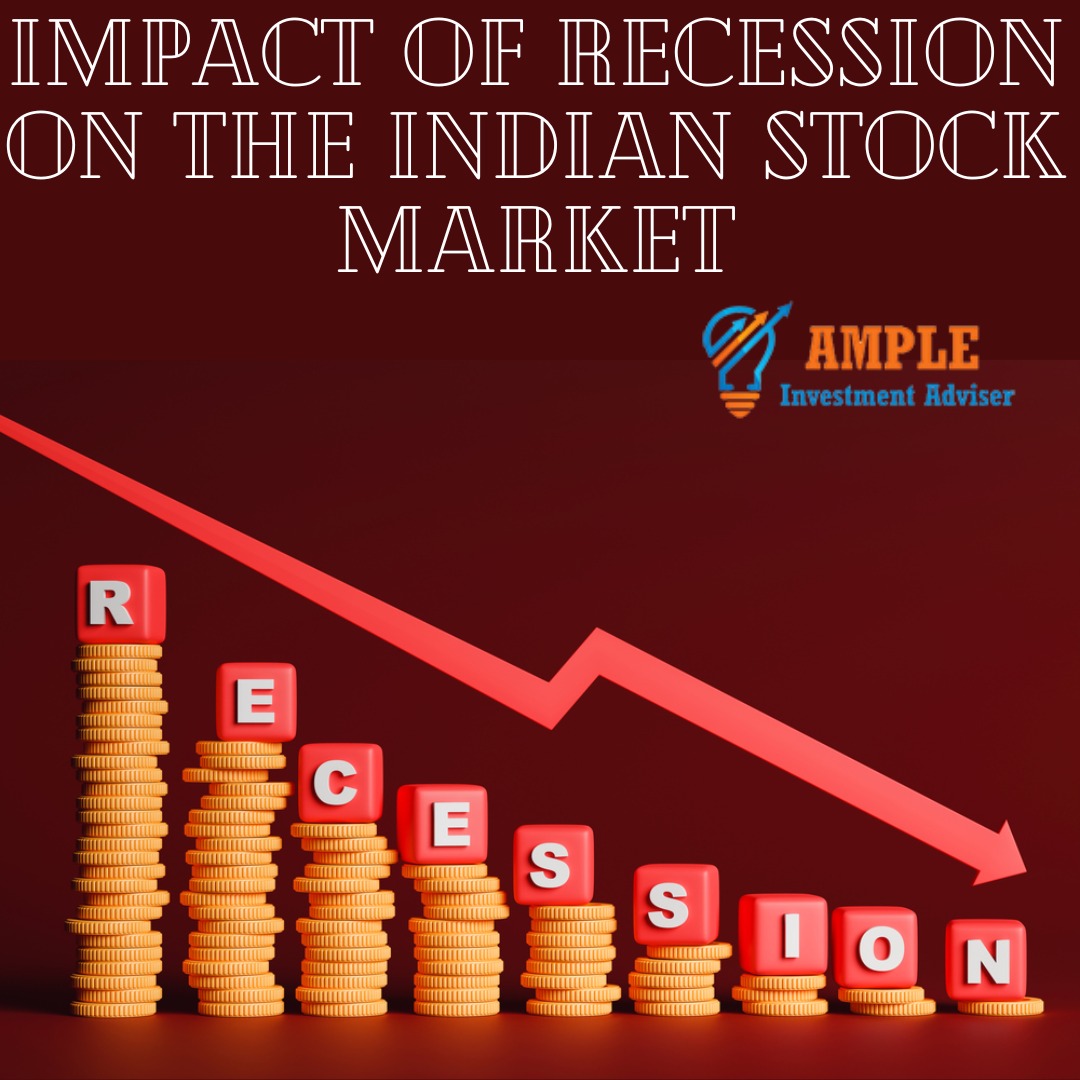What Effects The Recession Has On The Indian Stock Market

India is a developing country that experiences periods of economic development as well as periods of economic decline. While the economy is reaching new heights, there are moments when it slows down. The COVID-19 epidemic is the most recent example of this. While the pandemic affected the entire world, it also had a significant negative impact on India’s economy.
Aside from a crisis or epidemic, the Indian stock market is influenced by a variety of domestic and foreign events. One such issue is the economic downturn, which has a negative impact on the Indian stock market. Let’s figure out how, but first let’s go through the fundamentals.
What is Recession?
A decline in a nation’s economic activity is referred to as a recession. The Gross Domestic Product of a nation may decline as a result of this slowdown, which could extend for two or more quarters (GDP). Along with the GDP, other economic measures such as business profits, employment prospects, and more see a fall.
During a recession, commercial and industrial activity decreases. In the end, this results in a decline in the GDP as a whole.
Impact of Recession on the stock market
The Indian economy and stock market have a strong relationship. As a result, the stock market also closely observes any effects on the economy.
The Indian economy is significantly impacted by the recession. Stock market performance will suffer if the economy weakens. There are two ways interpret this:
The stock market has declined
Economic decline during a recession also results in a decline in the stock market. Reduced household disposable income, decreased demand, and decreased business activity all work together to drive down the stock market. Additionally, there is a bearish trend and a change in the mentality of the market.
Another thing to keep in mind is that a recession in one country not only affects the stock market there, but also has an impact abroad.
One of the best examples of this is the financial crisis of 2008. India’s stock market crashed as a result of the recession that began in the US. A formed housing market bubble burst, which set off the crisis. When it came time to repay the loans after a string of careless lending, borrowers started defaulting. As a result, several banks failed, financing became more restrictive, and international trade decreased. The severe economic shock that began in the US had a knock-on impact that caused economies all around the world to slow down. On September 19, 2008, the Dow Jones index hit a record low. The Indian exchanges suffered a similar fate as the US stock market.
Volatility has increased
As the market declines, stock market volatility also rises noticeably as traders and long-term investors search for discounted stock prices to acquire high-quality equities to their portfolios. If there are too many buyers, the demand to buy could temporarily drive up the price of the stock. Due to the stock market’s increased volatility, many people find equities to be an unfavorable investment.
Conclusion
Even though it is not a permanent state, recession has a negative impact on both the stock market and the economy. Although unlikely, it is a possibility. Therefore, it is crucial for you to understand how a recession would affect the stock market if you invest in stocks. Additionally, you must develop intelligent portfolio management skills so that short-term fluctuations do not impair your long-term investing objectives and plans.
Get our live Calls. Check out latest IPO News, Best Stock Market Articles on Knowledge Corner, get daily reports on premium stocks, know market’s daily calls updates on Tracksheet, Like us on Facebook and follow us on Twitter
